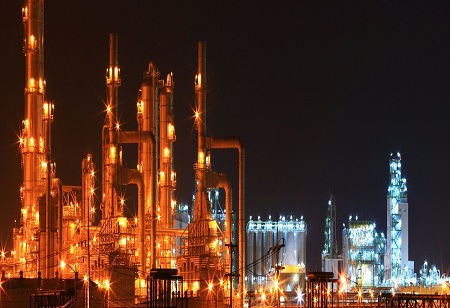
In the realm of chemical manufacturing, efficiency is paramount. Optimizing processes, reducing waste, and improving productivity is essential for a plant to remain competitive. A highly efficient chemical manufacturing plant can yield numerous benefits, such as cost savings, increased output, and improved product quality.
Implementing new technologies such as automation and data analytics can help to reduce production costs and improve productivity. Using predictive maintenance can help to identify potential problems before they occur, enabling more efficient operations. Investing in training and education for employees can also help to increase efficiency. Automation can reduce the amount of manual labour needed, and data analytics can help to identify areas of improvement in the production process. Predictive maintenance can alert employees to potential issues and help to reduce downtime and increase efficiency.
As chemical companies strive to improve the efficiency of their manufacturing plant, let us look at some of the ways in which it can be achieved.
Embracing Technological Advancements
In today's rapidly evolving world, technology is pivotal in revolutionizing the chemical manufacturing industry. Embracing technological advancements can greatly enhance operational efficiency and streamline production processes. Here are some key areas where technological integration can make a substantial difference.
Automation and Process Control: Implementing advanced process automation systems can significantly improve efficiency in chemical manufacturing plants. By automating repetitive tasks and leveraging real-time data analytics, operators can monitor and control processes more effectively. Automation reduces human errors, enhances safety, and allows for faster response times, ultimately leading to increased productivity.
IoT and Data Analytics: The Internet of Things (IoT) and data analytics have the potential to transform chemical manufacturing plants. By connecting various devices and sensors, manufacturers can gather real-time data on production parameters, energy consumption, and equipment performance. Analyzing this data enables proactive maintenance, predictive modelling, and optimization of processes, resulting in reduced downtime, improved energy efficiency, and better overall performance.
Advanced Materials and Catalysts: The use of advanced materials and catalysts can significantly improve the efficiency of chemical manufacturing processes. For instance, catalysts with higher selectivity and activity can facilitate faster reactions and minimize unwanted by-products. Similarly, utilizing innovative materials, such as membranes or nanoparticles, can enhance separation and purification processes, reducing energy consumption and waste generation.
Implementing Lean Manufacturing Principles
Lean manufacturing principles focus on eliminating waste, optimizing resources, and continuously improving processes. Implementing these principles can lead to significant efficiency gains in chemical manufacturing plants. There are some fundamental aspects of lean manufacturing that can enhance operational efficiency.
Value Stream Mapping: Value stream mapping involves mapping the entire production process, from raw material acquisition to product delivery. By visualizing the flow of materials and information, manufacturers can identify bottlenecks, redundancies, and non-value-added activities. This enables them to streamline processes, eliminate waste, and optimize resource allocation, resulting in improved efficiency and reduced costs.
Just-in-Time (JIT) Production: JIT production aims to minimize inventory and reduce lead times by producing goods in response to customer demand. Implementing JIT principles in chemical manufacturing requires close collaboration with suppliers, ensuring a timely and reliable supply chain. By reducing inventory holding costs, minimizing storage space requirements, and avoiding overproduction, chemical plants can optimize efficiency and respond more effectively to market demands.
Continuous Improvement: The philosophy of continuous improvement, often associated with Kaizen, encourages employees at all levels to contribute to the ongoing enhancement of processes. By fostering a culture of continuous learning and improvement, chemical manufacturing plants can identify and address inefficiencies, identify opportunities for innovation, and implement small-scale changes that cumulatively yield significant efficiency gains.
Energy Optimization and Sustainability
Energy optimization and sustainability have become integral to the success of chemical manufacturing plants. Plants can improve efficiency while reducing their ecological footprint by adopting environmentally friendly practices and optimizing energy consumption. There are three key areas to consider in this context.
Energy Efficiency: Chemical manufacturing plants are significant energy consumers, making energy efficiency a key focus area for improvement. Conducting energy audits, investing in energy-efficient equipment, optimizing heating and cooling systems, and utilizing renewable energy sources are all effective ways to reduce energy consumption and lower operating costs.
Waste Minimization and Recycling: Implementing waste reduction strategies can lead to significant cost savings and environmental benefits. Chemical manufacturers can explore options such as process optimization to minimize waste generation, implementing recycling programs for by-products and packaging materials, and exploring innovative technologies for waste treatment and disposal.
Responsible Chemical Management: Ensuring responsible chemical management practices not only protects the environment and human health but also helps streamline operations. Implementing proper handling, storage, and disposal procedures for hazardous substances, investing in advanced containment systems, and adhering to regulatory requirements promote safety, reduce incidents, and improve overall efficiency.
To maximise efficiency in chemical production, a comprehensive strategy that encompasses process optimisation, energy conservation, waste reduction, safety precautions, and quality control is required. Chemical producers may boost productivity, decrease costs, and reduce environmental impact by optimising the process, saving energy, minimising waste, introducing safety measures, and guaranteeing quality control.
We use cookies to ensure you get the best experience on our website. Read more...